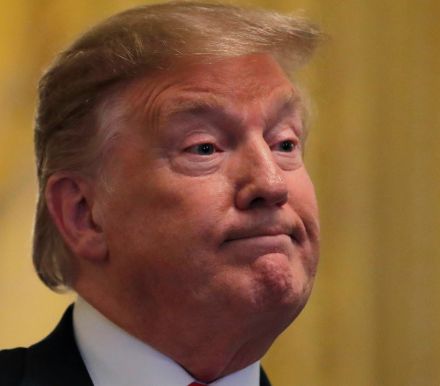
CREW Citizens for Responsibility and Ethics in Washington is a nonprofit legal watchdog group dedicated to holding public officials accountable for their actions.
There is compelling evidence that POTUS may have personally committed up to eight criminal campaign finance and related offenses while running for president and during his first year in office, according to CREW.
A Campaign to Defraud combs through the facts behind these apparent crimes, based on admissions by two of President Trump’s likely co-conspirators and news reports, detailing how criminal law can already be applied to publicly known facts. Most of President Trump’s potential violations are related to illegal campaign contributions meant to cover up evidence of Trump’s affairs with two women, preventing voters from learning the truth about his behavior ahead of the election, though at least one continued well into his first year in office. The eight criminal offenses, including seven felonies, potentially committed by Trump include:
Causing American Media Inc. AMI to make and/or accepting (or causing his then lawyer Michael Cohen to accept) an unlawful corporate contribution related to Karen McDougal.
Two instances of causing Cohen to make and/or accepting unlawful individual contributions related to Stephanie Clifford and February 2015 online polling.
Two instances of causing Donald J. Trump for President LLC’s failure to report contributions from AMI and Cohen related to McDougal and Clifford.
Causing Donald J. Trump for President LLC to file false reports with the Federal Election Commission (FEC).
Making a false statement by failing to disclose liability to Cohen for the Clifford payment on his 2017 public financial disclosure form.
Conspiracy to defraud the United States by undermining the lawful function of the FEC and/or violating federal campaign finance law related to “hush money” payments, false statements, and cover-ups of reimbursement payments to Cohen made by the Trump Organization.
CREW points out that while violations of the Federal Election Campaign Act can be penalized with civil fines, more serious offenses such as unlawful campaign contributions or expenditures in excess of $25,000, made knowingly and willfully, are felonies punishable by up to five years in prison. Trump’s conduct appears to have been part of a deliberate effort to manipulate public opinion and to prevent damaging information about his past from coming to light and thus may trigger criminal penalties.
